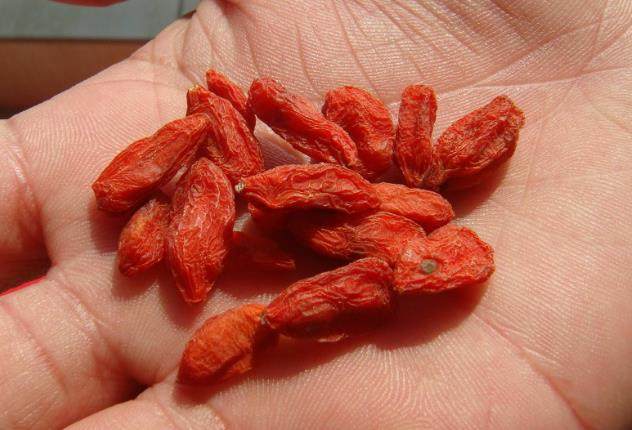When it comes to the benefits and efficacy of goji berries, those with a bit of health consciousness are well aware of its significant advantages to the human body. However, the best time to eat goji berries has been a topic of debate among many. In Chinese culture, we believe in the importance of timing and conditions in achieving perfection in everything we do, including our dietary habits. Some foods are more effective when consumed in the morning, while others work better when eaten in the evening. So, what are the specific benefits of eating goji berries? When is the most effective time to consume them during the day? And how many berries should one eat daily for optimal results?
What are the benefits of goji berries?
1. Boosting the immune system
Goji berries are rich in polysaccharides, which are water-soluble and physiologically active. These compounds enhance non-specific immune functions, improve the body’s disease resistance, and have effects on inhibiting tumor growth and cell mutation.
2. Anti-aging properties
The aging process of our bodies is closely related to cell apoptosis, and the polysaccharides in goji berries significantly enhance the phagocytic ability of engulfing cells and the proliferation capacity of lymphocytes, effectively combating aging.
3. Anti-tumor effects
Goji berry polysaccharides not only serve as bioregulators of immune responses but also exhibit anti-cancer effects by regulating the neuro-endocrine-immune axis.
4. Enhancing vision
Our retinas’ photoreceptors are made up of retinol and proteins. Goji berries contain plenty of beta-carotene, which can be converted into vitamin A in the body. Vitamin A, in turn, produces retinol, thereby improving eyesight and preventing macular degeneration.
When is the best time to eat goji berries during the day?
1. Morning or forenoon
Early in the morning is the optimal time for kidney nourishment, and goji berries are an excellent choice for warming and nourishing the liver and kidneys. Consuming goji berries in the morning or forenoon can help invigorate yang energy without harming yin.
2. Afternoon
Many people have the habit of having afternoon tea, so opting for goji berry-infused water is a good choice. Between 5 to 7 PM is the kidney’s opening and closing time, and consuming goji berries or goji water during this period can greatly benefit both the kidneys and the liver.
3. Before bedtime
If one aims to improve their sleep quality, drinking some goji berry water half an hour before bedtime can be beneficial, but consistency is key to seeing better results. However, individuals with excessive internal heat are advised against consuming goji berries before bed, as it may hinder sleep and lead to vivid dreams and fatigue.
How many berries should one consume daily for optimal effects?
Generally, goji berries can be eaten throughout the day without specific time restrictions. However, consuming them on an empty stomach aids in better nutrient absorption, but overeating goji berries should be avoided. For healthy adults, a daily intake of around 20 grams (approximately 50-80 berries) of goji berries is recommended, which can be increased to 30 grams for therapeutic purposes. While regular consumption of goji berries is beneficial, excessive intake may lead to symptoms like internal heat, nosebleeds, and eye discomfort.
The following people should avoid consuming goji berries:
1. Those with colds or fever
Since goji berries can be considered a medicinal herb with warm properties, individuals suffering from colds or fever, who already have excessive internal heat, should refrain from consuming goji berries or goji-infused water as it may exacerbate fever symptoms.
2. People with diarrhea
Those with weak bodies and diarrhea are advised against consuming goji berries, as they may worsen diarrhea and cause harm to the body’s functions.
3. Individuals with spleen deficiency
People with weak spleen and stomach function and poor digestion are advised not to consume goji berries, especially during hot summers, to avoid symptoms such as decreased appetite and acid regurgitation.
4. Individuals with yin deficiency
Those with a yin-deficient constitution suffer from the depletion of substances like essence, blood, and fluids, where the lack of yin control over yang can lead to a state of excitement in the body. Therefore, such individuals are not recommended to consume goji berries as their mild nature may cause excessive internal heat when overconsumed.
5. Individuals with hypertension
As goji berries have a warming effect, they are beneficial for individuals with warm bodies. However, patients with hypertension usually have insufficient liver yin with excess yang, and blind consumption of goji berries can lead to unstable blood pressure.
6. Diabetics
While goji berry extracts can lower blood sugar levels and have anti-diabetic effects, their sugar content is relatively high. Therefore, despite their blood sugar-lowering properties, consuming large amounts of goji berries may lead to elevated blood sugar levels.
The best way to consume goji berries is by chewing them dry. Eating goji berries on an empty stomach allows for maximum absorption of their nutritional components. If including goji berries in soups or porridge, it’s best to add them 10 minutes prior to serving, as polysaccharides and other active ingredients in goji berries can break down at high temperatures, making prolonged cooking unsuitable.


